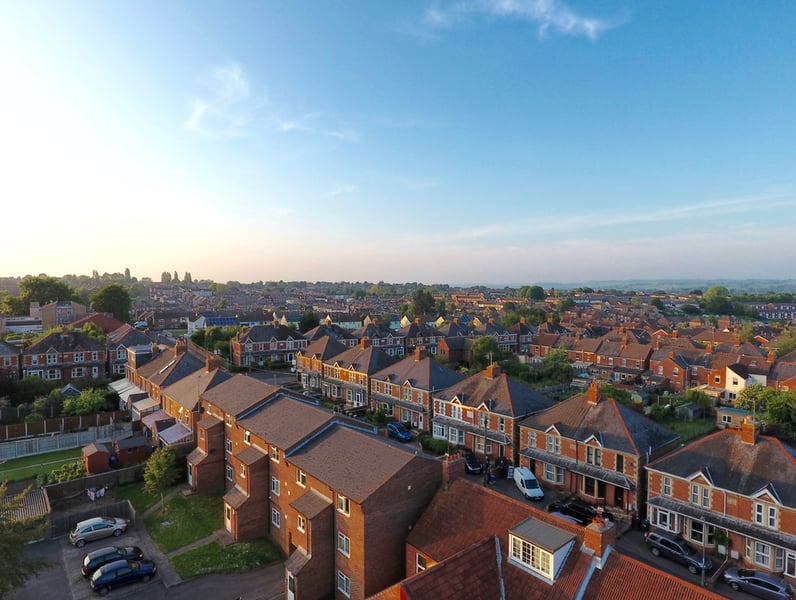House prices rose by 0.2% from August to September.

Average house prices increased by 1.3% in the 12 months to September, the ONS UK House Price Index has found.
House prices rose saw a monthly increase of 0.2% between August and September, with the average house price reaching £234,000 in September.
Mark Harris, chief executive of mortgage broker SPF Private Clients, said: “More subdued numbers come as no surprise, given the political uncertainty which continues to rage, and values are holding up remarkably well considering.
“London is still seeing the lowest annual growth in prices as the capital falls more into line with the rest of the country.
“While this is welcome for those trying to buy in the capital, let’s not get carried away as it is still difficult to afford property in London and the South East.
“Lenders are doing their bit, keen to lend and offering ever-cheaper fixed rates but finding the necessary deposit is often the issue, which is why the Bank of Mum and Dad remains so prevalent.”
At a regional level the North West had the highest annual house price growth, with prices increasing by 2.8% in the year to September.
The lowest annual growth was in the capital, where prices fell by 0.4% in the 12 months to September.
Andrew Montlake, managing director ofCoreco, said: “The Brexit ball and chain continues to weigh on the property market, but it hasn’t dragged it to the bottom as many predicted.
“London, once again, is at the bottom of the annual price table as it pays for its obscene growth earlier in the current decade.
“Extremely low borrowing costs and cheaper prices continue to drive sales while a strong jobs market and ever-falling inflation are giving people confidence amid the chaos.
“All eyes for now are on the December General Election.
"When we all wake up, somewhat ominously on Friday 13 December, we will know a lot more about the likely direction of the property market in 2020 and beyond.”
Tomer Aboody, director of property lender MT Finance, added: “People have had enough of elections and uncertainty - they want a resolution to government and Brexit which will enable confidence to return to the market.
“London is always going to see the biggest movement in house prices whether it is a decline or increase because it has the highest value properties.
“But what is noticeable in London is that people are looking to buy, it’s just the lack of supply.
“Not enough people are selling because of the uncertainty; people are wondering whether they would be selling at the right time or getting the right price, which accounts for the lower sales volumes.
“Until we have some clarity on the political front, nothing will happen, particularly in London.
“People are not going to spend an average of £500,000 or thereabouts in London until they know what is going to happen with the upcoming election.”
House price growth in Wales increased by 2.6% between September 2018 to September 2019, with property prices in Scotland also seeing a rise of 2.4% year-on-year.
The average house price in England increased by 1% in September 2019 compared to figures seen the year previously.
Northern Ireland house prices increased by 4% in the 12 months to September and remains the cheapest UK country to purchase a property, with the average house price at £140,000.
Gemma Harle, managing director of Quilter Financial Planning’s mortgage network, added: “It is no surprise that both house buyers and sellers are choosing to wait to survey the landscape post-Brexit rather than take a gamble in the current uncertain climate.
“However, what’s particularly concerning is that you typically would see an uptick in prices at the end of summer thanks to lots of people choosing to move before the schools go back and the dark nights draw in, but this year the rebound seems to be somewhat muted.
“Similarly, while the annual price increase across the UK stands at around 1.3% this is below the current rate of inflation meaning in real terms house prices have dropped.
“Regardless of political stance, it is hard to not take notice of the changes in the market due to the political turmoil currently gripping the nation.
“House prices rise and fall in cyclical fashion and we are due a correction from a historical standpoint.
“It may be that Brexit is the trigger that sees house prices drop and enter into a downturn. Whether this downturn materialises is something we will likely have a clearer view on in in the next few months.”


